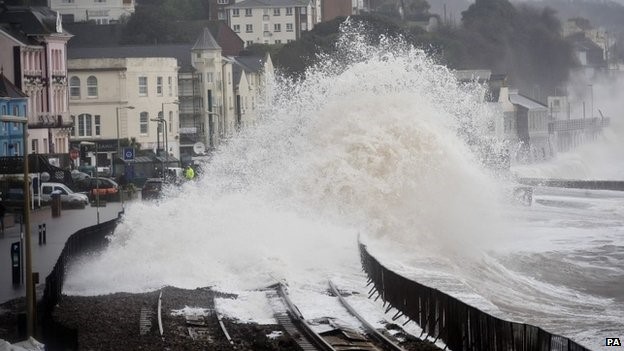Water Resources Engineering (WRE) connects engineering hydrology and hydraulics with global, economic, environmental, and societal issues. Our student Jordan Gray-DeKraai makes this connection here…
The journal article entitled, “‘Natural’ engineering offers solution against future flooding” was reported by ScienceDaily on January 28, 2014. This news relates to the WRE domain of hydrology and the specific issue of stormwater runoff. In summary, this news article reports on how using natural defenses to reduce flooding could reduce costs in resolving such a large problem. The capturing of flow upstream can prevent floods downstream by storing water, increasing soil infiltration, slowing water by increasing resistance to its flow, or by redirecting the water by channeling it away from the main flow. Based on my engineering education, my informed opinion is the WRE facts in the news are accurate, as I show with the following research citations. According to Wilinson and Quinn (2014)’s study it was found that natural, upstream mitigation measures have been identified to reduce flood risk and even improve water quality. Hawley (2012) found that restoration projects had the highest benefit-cost ratio proving that these flood reducing strategies are economically sound. I think the article has missed reporting important information on the effects of flooding why it is so important to prevent. The article went into detail on how it would prevent flooding, but no so much as to why it is such a large problem in the UK and many other areas of the world.
The water resources engineering issue of flood control influences global, economic, environmental, and social context areas. Flooding occurs all around the world which is why it is so important to be aware of. Economically, a lot of money can be saved by investing in proper flood control techniques that prevent the expensive damages that come along with severe flooding. Flooding can disrupt many of the surrounding ecosystems and not only threatens the lives of the living organisms within these ecosystems, but many human societies. Flooding is one of the biggest problems facing the UK today, but with the increased ‘natural’ engineering solutions they will be more prepared to face this issue. According to BBC news (2014), parts of the UK were recently hit by a storm that destroyed parts of a railway, forced people out of their homes, and left thousands without power. Seventy-five million dollars is being dedicated to flood repairs in the next year due to this storm. Flooding is not a rare occurrence in this part of the world and effects the lives of everyone living within the area. Flood control has the potential to make a huge impact in this region of the world and many others.

Area affected by flooding in early February of 2014 in the UK. Parts of a railway were destroyed and thousands were without power.
References
A framework for managing runoff and pollution in the ruaral landscape using a Cathment Systems Engineering approach, in Science of The Total Environment 2014, edited by M.E Wilkinson, P.F. Quinn, N.J. Barber, J. Jonczyk. pp. 1245-1254, Elservier B.V., 2014.
Newcastle University. “‘Natural’ engineering offers solution against future flooding.” ScienceDaily. ScienceDaily, 28 January 2014. <www.sciencedaily.com/releases/2014/01/140128094531.htm>.
UK stroms destroy railway line and leave thousands without power, in BBC News 2014, by Jon Kay. BBC News, 5 February 2014.
Understanding the economics of flood risk reduction, in Social and Environmental Transition-International 2012, by K Hawley, M. Moench, L. Sabbag. Institute for Social and Environmental Transition-Internation, 2012.

